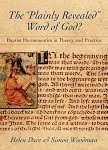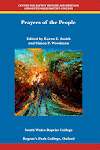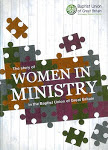Luke 2.1-20
Have you seen the wonderful musical Come from Away,
which has been playing at the Phoenix Theatre near Bloomsbury
for the last few years?
If not, then it’s about to close on 7th January,
so you don’t have long left to catch it!
It’s a Canadian musical, and is based on the events
in the small Newfoundland town of Gander
during the week following the September 11 2001 terror attacks.
In the aftermath of the aeroplanes hitting the Twin Towers in New York,
all airspace over the United States was immediately closed,
but the problem as there were already planes mid-flight across the Atlantic,
without enough fuel to return.
So these planes, 38 of them, carrying approximately 7,000 passengers,
were ordered to land unexpectedly
at Gander International Airport.
There is a large runway used for refuelling stops,
but in absolutely no way at all was the town geared up
for all those who suddenly needed housing and help.
The characters in the musical are based on
actual Gander residents
and the stranded travellers they hosted and fed.
The show has been described as
‘the most heart-warming musical ever written about logistics’,
and it’s genuinely a show that makes you laugh and cry at the same time
as it depicts the astonishing welcome given by the small local community
to people stranded far from home,
set against the backdrop of an international terrorist incident.
In a moment I’m going to play us one of the songs from the show,
but first I probably ought to explain
why I’m showing this on Christmas day.
The thing is, I think something similar to this,
albeit on a slightly less international scale,
was what was happening in Bethlehem,
at the time of the birth of Jesus.
Let me explain…
We sometimes get the idea that the ‘inn’ in Bethlehem,
at which there was famously ‘no room’ (2.7)
was a sort of ancient equivalent to a modern hotel:
the kind of place where, once all the rooms are taken,
a ‘no vacancies’ sign gets put in the front window.
But actually, the Greek word here means ‘guest-chamber’,
and what we’re actually talking about is a place in the house,
maybe a bedroom,
or possibly just a corner of a communal sleeping room,
where visitors from the extended family could stay when in town.
You see, the ancient world was a place which ran on hospitality,
it was culturally essential for people to offer hospitality,
particularly to those from their wider family networks.
And Joseph’s family were from Bethlehem,
so under normal circumstances it would have been simple
for him and Mary to find a place to sleep there;
and the idea of refusing a room to a pregnant woman
would have been an unthinkable breach of hospitality.
But these were not normal circumstances,
they were anything but normal,
because the Roman Empire had altered the circumstances entirely.
We know that this story is set against the backdrop of the Empire,
because Luke makes it clear for us.
He does so in 2.1 by telling us that these events happened at the time
when the Emperor Augustus issued a decree
that all the world should be registered.
This is the Roman Empire at its most intrusive:
I mean, we worry today about data-gathering,
but Caesar Augustus knew a thing or two about this mechanism of control:
and he wanted every person to be registered,
primarily so that every person could be taxed.
And for this to achieved,
all people were required to register in their ancestral town,
regardless of where they actually lived.
This outlandish demand of the Empire
placed an unreasonable burden on every person in the land:
people had to travel who should have remained at home,
and some towns suddenly had such an influx of visitors
that the normal rules and expectations of hospitality
were stretched beyond breaking point.
So let’s now hear the song ‘Blankets and Bedding’ from Come From Away,
as the locals of Gander frantically scramble to offer hospitality.
https://youtu.be/IWpqrhh-rKg
If a stranger ends up sent by fate…
Are we gonna be ready?
Well, we have to be, don’t we!
Sometimes the world makes impossible demands of us:
Maybe 38 aeroplanes land in a small town in Canada.
Maybe the Empire orders everyone to their home town for a census.
Maybe there’s a war in Ukraine and people need urgent hospitality.
Maybe there’s an evacuation from Afghanistan and people need rehousing.
I think that the story of Mary and Joseph in Bethlehem,
being given somewhere to sleep with the animals
because there was literally no room in house,
is the story of a community making do in extremis,
of people refusing to turn away the pregnant young woman,
refusing to give up on their values of hospitality
despite all the pressure to do so.
Like Gander in Newfoundland in 2001,
the people of Bethlehem 2,000 years earlier
found somewhere for Jesus to be born.
It wasn’t ideal, but it was enough.
And I wonder what this ancient story says to us,
as we contemplate our place
in a world where people continue to find themselves in extreme situations?
Will we capitulate with the cultural pressure to ‘batten down the hatches’,
looking after our own, and leaving others to do the same?
Or will be rediscover the values of hospitality, in our own lives,
but also in our communal life together as a church community,
and as a nation more widely?
I think the way people rallied round to care for the poor and vulnerable
during the years of the pandemic,
tells me that these values of hospitality,
of making things work in a time of need and crisis,
are still very much part of who we have the capacity to be,
because they are, fundamentally, part of what it means to be human.
Jesus was born into a town in crisis,
and yet the angels sang of his coming
as news of great joy for all people.
Sometimes, out of crisis comes the blessing of God.
So this Christmas, as we contemplate the Christ-child in the manger,
I wonder if we can hear a challenge to us:
asking us how we will welcome the Holy Family into our lives?















